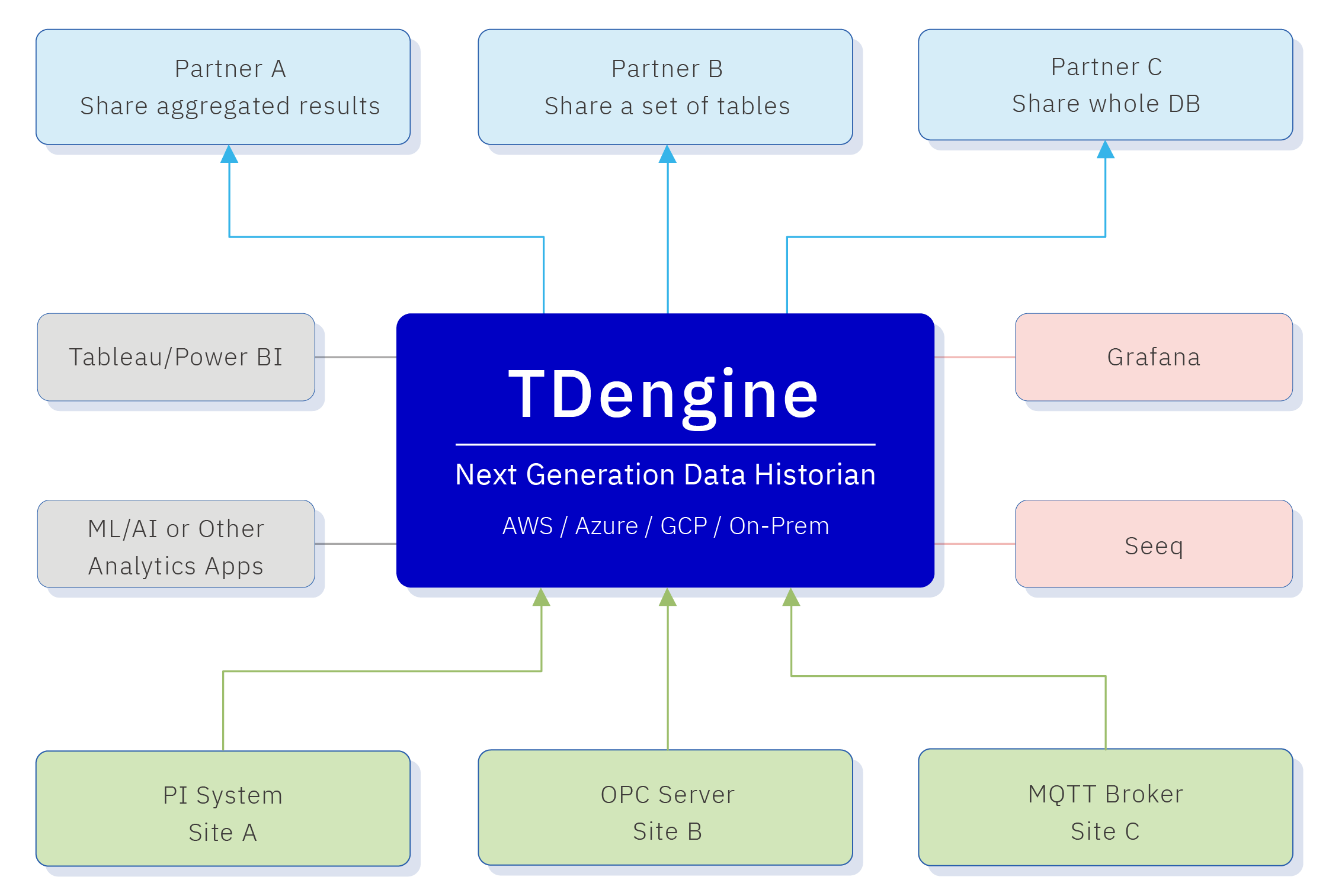Until recently, it was a given that data historians were closed systems. Each vendor had its own way of doing things, often including proprietary protocols and interfaces, and it was not expected that different platforms could interconnect without significant effort.
With the advent of Industry 4.0, the Industrial IoT, and AI, it is clear that the status quo is no longer acceptable. Industry needs open ecosystems to progress and to maintain competitive advantage going forward.
Siloization by Design
Traditionally, integration with products from other vendors was not a priority for industrial data systems. Customers were forced to use proprietary connectors that limited their options for integration with third-party platforms. To make matters worse, these connectors were often provided at an additional cost to the customer.
In addition, vendors used the locked-down nature of their products to lock in customers, making migration to new systems a costly and time-consuming process. Over time, as enterprises deploy different versions of data systems or acquire systems from different vendors, the distribution of industrial data only increases in difficulty, often involving manual operations.
While digital transformation is already a priority for most in the industrial sector, the industrial data platforms currently in use are blocking the path forward. These platforms are not designed to facilitate the sharing of data that is required for Industrial IoT and other new concepts; instead, each closed system has become a data silo.
TDengine: A New Approach
TDengine is an open source company at its core and is determined to bring the openness of the modern tech world to the industrial sector. Our industrial data platform is an open system that can easily integrate with a wide variety of visualization, business intelligence, and AI tools through standardized interfaces. These include ODBC, JDBC, and connectors for popular programming languages like Python and C++.

With its open ecosystem, TDengine allows you the freedom to construct the data stack that is best for your business. Its support for standard SQL and industry connectors for PI System, OPC, and MQTT also make it easier to fit into your existing infrastructure. You can try out new applications and services quickly before making a final decision, which is especially important with the deployment of new technologies such as AI and IoT.
The open nature of TDengine also facilitates data centralization and secure, simple data sharing, both internally and externally. By deploying TDengine into your data infrastructure, you can get a big-picture view of your operations at multiple sites and achieve a better understanding of your business, even if those sites are running different data systems.
And unlike traditional data historians that make it difficult for you to access your data, TDengine includes tools that allow you to export your data to other systems. In addition, the data subscription feature of TDengine can replicate data to other systems in real time. You can rest assured that you are not “locked in” to TDengine; instead, it gives you more control over your data than ever.
The future of industrial data is open. Only TDengine can help you align with that future and reap the benefits of Industrial IoT.



